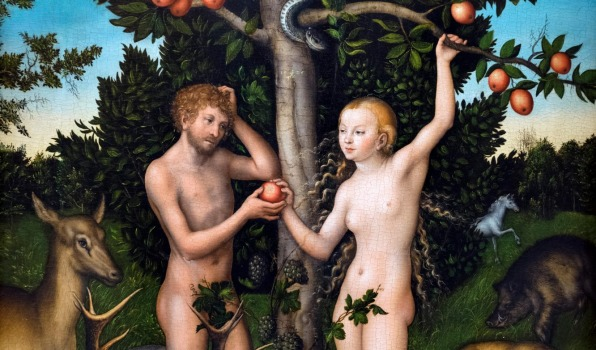Adam and Eve - Its real meaning
There are those who affirm that Adam and Eve were not a man and a woman, but cities, could you explain what the real meaning is?
If we think that in speaking of man and woman, in Gen 1,26-27, as they appear in the text, we do not think of "So-and-so" or "So-and-so," but of all the men and women of history, it is say, man and woman in a general sense. Hence, when talking about Adam and Eve, as the first protagonists of salvation history, we will do the same. That is, stop thinking that they were Fulana or Fulana, a boy and a girl "eating jocotes, oranges or apples in a paradise ...", but rather as a model than what we are and we are today.
The first thing we have to say is that the sacred authors, when writing the biblical texts, did not think like us and used other ways of telling things. So that, to teach the truths of the faith, they used stories, legends, mythical language, popular narratives and so on that, far from telling us how events happened, rather they wanted to teach us the meaning and the message that, through these forms , they are presented in the biblical text for our life. And this happens with "Adam and Eve", so well known to everyone through catechesis and the teaching of the Bible or the Church, conversations, films, theological exhibitions and even paintings that exist of them ... Because of both we've heard a lot...
The names of "Adam" and "Eva"
Let's start by their names. The term "Adam", in Hebrew "adam", is not a person's name (that is, as we usually call our family and friends with a proper name such as Carlos, María, Ernesto, etc). It means simply "being human". So all of us are "adam", that is, "human beings". In addition, this word comes from the Hebrew word "adamah", which means "fertile land". For the Jews, who lived in arid and dry lands back in Israel, this word "adamah" was synonymous with life, fertility and abundance.
And Genesis tells us that God created the human being from the "adamah", from the dust of the earth, from the mud, hence his name "adam" (using the beautiful image of the potter, so common in those times), so that we know that the human being was created especially by God, that God made it from his own hands, and gave him life from his own life (see Gen 2.7).
On the other hand, the word "Eve" (in Hebrew "hawwah"), is not a proper name of person, in this case of a woman. It is a Hebrew term, related to a Hebrew verb ("hayah"), which means "to live". Therefore, the book of Genesis associates the name of Eve, to the fact that she is the mother of all living beings (see Gen 3:20). That is why we have always thought that Eva was a concrete woman.
With the passage of time, "adam" and "hawwah" became the names of people, that is, "Adam and Eve", as we know them (see Gen 5,1). That is why we have always believed in them, as a couple or boyfriends, that with them began the existence of humanity and that we all come from them ... The New Testament has thought that way, like "Adam" or "Eve" (see Lc 3,38, Rom 5,12-15, 1 Cor 15,22,45, 2 Cor 11,3, 1 Tim 2,13-14, Jds 14), when, rather, the text of Genesis teaches that human beings come from God himself, because he has created us in his image and likeness (see Gen 1,26-27). If we descend from one or more couples, this has to be answered by science, anthropology or ethnology, but not by faith.
In short: the term "Adam" does not mean only "man" in the sense of an isolated individual. The word "Adam" metaphorically means "humanity". From the earth itself, the Lord God has shaped the humanity that inhabits the world (Gen 2,7). The word "Eve" is not a proper name either, but symbolic. Eva represents what humanizes the human being. Eva metaphorically represents "society". The text about the creation of man and woman (Gen 2,4b-25) teaches that only fraternal contact with others makes life fully human. The "man" ("Adam"), which God has modeled, ends up being formed in "Eve" (see Gen 2.7.18-24).
